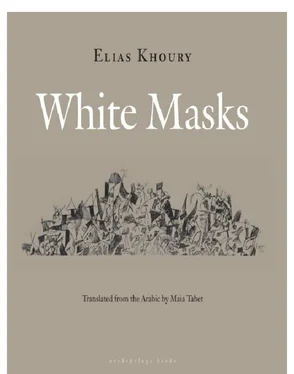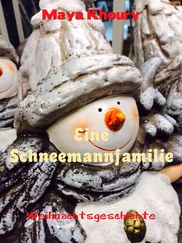“Where oh where have you gone, Mahmud?”
Mahmud was always running. The streets of Kantari are long, and as Mahmud ran the streets with the young fighters, the very streets seemed to run. The building he watched over was completely abandoned; no one ever came by but the Armenian doctor. He’d sit on the building’s front steps, with gunmen milling around, and run to meet the doctor whenever he saw him coming in the distance.
“Dr. Harout, you mustn’t. .” he’d say. The doctor, his frail body shaking, would look at Mahmud with those wilting eyes of his and commend the stone to Mahmud’s care.
“Take good care of it, now, Mahmud. . you know… the stone, in my apartment, it’s a rare and antique piece, don’t let them break it.” Mahmud would reassure the doctor and wouldn’t let on that he no longer dared go up to the sixth floor.
“The sixth floor is off limits,” the comrade had said to him. “There are fighters up there, and it’s exposed to shelling. There’s no going up there.” So Mahmud no longer ventured up. . he wasn’t about to die for the sake of a stone.
He spent all his time with the shabab — the young militiamen — and did as they did. Whenever he crossed the street, he would duck and weave fearlessly like them, even as he heard the bullets whizzing past his ears. . the sky was interminable, the streets endless, but he stayed on with them as they shivered under the pouring rain, with their metal rifles and combat boots, and their hacking coughs mingled with fear, and cold, and rain. He was on their side. With them. .
That’s what Mahmud told the young man — twenty-five years old, handsome, with blond hair and an assault rifle dangling off his left shoulder. He must want to die, thought Mahmud, as he stood explaining to him that he couldn’t leave the building because he was the watchman.
“But it’s dangerous here. Your life is in danger,” replied the tall, blond youth who apparently coveted death. “Aren’t you afraid?”
“Of course I am,” Mahmud Fakhro told him, “but I’ve got to stay here. I have to, don’t you see? I’m the watchman, and the landlord calls every day. He’s the landlord. What would I tell him when he comes back?”
“Alright, OK, stay here then — you’ll find out for yourself that the land-lords won’t be back.”
“Thanks, brother. I really appreciate it.”
The blond youth, a hand grenade dangling from his waist, turned on his heels and was about to step out of the building when Mahmud stopped him.
“I have a question.”
“Go ahead.”
“And you, Comrade, aren’t you afraid?”
“Of course I am, I’m only human; but I’m learning to be a fighter.”
“But why fight?”
“We’re fighting for the revolution, for the sake of change. . for the sake of the poor. . for people like you who have nothing and live in poverty and misery.”
Mahmud agreed, he said they were right, but it looked like it was going to be a long haul.
“And you, why don’t you fight with us?” the blond youth asked him.
“Me, brother, I can’t, I have a family and children. And anyway, it has nothing to do with me. I don’t understand politics. How about you? Why are you fighting?”
“I already told you, I’m fighting for. . for the cause.”
“But. . don’t you have a job or anything?”
“No, I’m a university student.”
“That’s really great, really. . may the Good Lord protect you and keep you. . But why are you hell-bent on dying? If you went home and they did the same, there wouldn’t be any war. Why don’t you just let it be, brother?”
As the blond youth gazed at Mahmud, his eyes shone, both with love and contempt. He walked out of the building and onto the street, darting between the bullets that whistled all around him.
Whenever Mahmud talks about the war now, he recalls the image of the blond youth darting across the street: how his body became airborne, with blood spurting everywhere, his limbs jerking and twitching, like a rooster in a cockfight; how the blood streamed down his face and dripped onto the pavement; how his head dangled and his right shoulder slumped; how his rifle tumbled from his hand to the ground; how he continued to twitch, and his head hung lower and lower, as if he were looking for a coin that had rolled away; and then, the final spasm.
As Mahmud took off across the street to retrieve him, voices roared: “Stop! Don’t move! There’s a sniper! Nobody move! Leave him, nobody move!. . A sniper, there’s a sniper!”
The blond youth reeled, like a dancer doing a jig. And even as his head came to rest on the ground, the hair already stiff and matted with dust, his body danced on, his feet twitching against the pavement… And then, finally, he slept. . the blond youth lay there asleep, all alone. . no one dared approach the peaceful supine figure, whose body seemed almost shriveled now, khaki pants shrunken, combat boots retracted into his legs, arms akimbo as though waving into the distance, the solitary rifle by his side.
Mahmud wept. Squatting behind the sandbags, with three gunmen next to him, he sobbed: “Why don’t you go and get him, he’s my friend. .”
But the air was thick with gunfire, the rain was heavy, and there were distant cries for help. . and out of nowhere, women in white headwraps appeared, running for their lives down the endless street. . still running, one of them scooped up a child that had tumbled from her arms and wiped his bloodied nose with her white wrap. . Everywhere running… everything running. . The gunmen shouted warnings at the women, admonishing them to stop. . but the women just kept running.
“Stop crying, you’re a man. And he’s a martyr!”
“He’s a martyr, and I’m a martyr,” replied Mahmud, bursting out laughing at the thought, with tears still streaming down his cheeks.
And then Dr. Harout appears at the top of the street. He is about to cross, but seeing the corpse of the blond youth, he steps back. Mahmud gestures to him not to try. One of the fighters trains his rifle on Dr. Harout, and Mahmud grabs hold of the gun barrel.
“Leave the poor man alone!” he says, and shouts to Dr. Harout to run for his life.
The doctor scurries off, constantly looking over his shoulder; the rain is flooding the streets, and he splashes through puddles.
“You’d think he wants to die,” says the young man who had taken aim at him.
Now the doctor is running in circles, and the gunmen are firing, the rain is pouring down, and the corpse of the blond youth begins to swell, water seeping into his clothes and his khaki shirt billowing out, but all Mahmud can see as he shivers are the red tracer bullets filling the sky. The gunmen fire, over and over again. The doctor’s dead, Mahmud is sure of it, the doctor’s dead and he’s left the stone.
But the doctor didn’t die. He just kept running, terrified by the bullets whizzing around him, not realizing they were shooting at him, with the beating rain and the women’s shrieks reverberating all through the street. It only appeared that the doctor was running in circles because Mahmud caught glimpses of him on and off. If you all went away, then this war would stop, Mahmud wants to say, but he doesn’t, because the terror he feels has spread to his knees and he urgently needs to relieve himself. As the urge intensifies, his neck hangs limp, as though it weren’t his own, as if it were just dangling from his head and about to come unstuck, to fall off. . he bends down to pick it up, or tries to, but as he tries, he slips and falls to the ground, and the hot liquid floods his pants. He tells the gunmen it’s nothing, he can hear them talking, and see their fingers. . he sees nothing but fingers, fingers stretching endlessly, fingers dangling loose, fingers attached with string. . he wants to tell the fingers to go away, but they approach his eyes, they are in his eyes. . and then everything turns red, and all the colors of the rainbow appear behind his eyes, and he can see the rising sun. . but then, the sun is setting… sleeping sun, dying sun. . They’re all laughing. . he can hear them quite clearly, the laughter rises, it’s turned into cackling, now all their teeth are exposed, white teeth, yellow teeth, teeth and more teeth, and a long red tongue dangling and falling to the ground. . trucks going by, and cars, and the din of engines. .
Читать дальше












